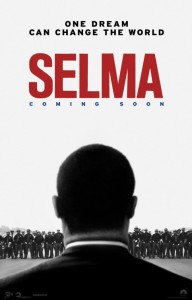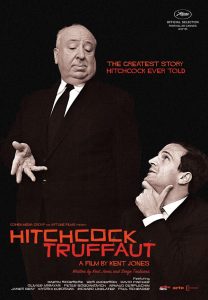 You may be forgiven for wondering why in the 21st century, it takes a movie about the civil rights movement to showcase the talents of African American actors. Certainly, the cast of Selma may not be financially bankable, but what they lack in monetary pull, they more than make-up for in talent.
You may be forgiven for wondering why in the 21st century, it takes a movie about the civil rights movement to showcase the talents of African American actors. Certainly, the cast of Selma may not be financially bankable, but what they lack in monetary pull, they more than make-up for in talent.
Director Ava DuVernay cast David Oyelowo in the role of the Nobel Prize Winner, Dr. Martin Luther King Jr., with Tom Wilkinson playing his foil, President Lyndon B. Johnson. These two men get off to a poor start when King refuses to lose the momentum his Southern Christian Leadership Conference (SCLC) has so-far gained in the civil rights movement. The president wants to concentrate on solving poverty, while King wants the 1964 Civil Rights act enforced in places like Alabama, where African Americans are routinely rejected from enrolling to vote.
Selma is the town in Alabama where King’s group decides to start working on this goal, putting local rights activists, James Foreman (Trai Byers) and John Lewis (Stephan James) offside. They argue that the SCLC will fly in then fly out again without doing anything but ruffle the locals, who already hate African Americans enough to have set off a bomb outside a church. This incident, the 16th street Baptist Church bombing, is referenced in the opening moments of the movie, and its brutality sets the scene for what black people were really up against. These days it would likely be called terrorism.
The actors, together with channeling their characters to a tee, are also lookers for the originals which helps ground the movie in the imagery of the time. Add to that the care with which each scene is crafted by cinematographer Bradford Young and Elizabeth Keenan, the set director, who do an amazing job of making the 1960s stand out on the screen. It’s an immersive experience, a fly on the wall look at the things people had to do to gain the rights they were legally entitled to, and the shady dealings of those in power. 
Indeed, rather than the traditional captions along the screen, giving location details, and other relevant information, instead we are given short reports from the F.B.I. (headed by Dylan Baker as J. Edgar. Hoover), which outline King and his groups whereabouts and movements. These help give us an insight, however small, into the surveillance society which existed at the time for all those who stood to gain in the Civil Rights movement. Yet, despite the oppressive power of the state, these people aren’t for turning; they’re fighting for the same rights and responsibilities as everyone else, and they’re doing it peacefully, as opposed to the more radical opinions of contemporary Malcolm X (Nigél Thatch). The struggles of King and the SCLC when contrasted against those in modern-day Ferguson, Missouri make this a topical film, one which helps remind us of how far African Americans still have to go before they are truly treated equally.
This is a slow burn of a movie, but it moves like a tsunami from the conversation in the white house between King and Johnson, to discussions in Alabama between governor George Wallace (Tim Roth) and Colonel Al Lingo (Steven Root) then up to Johnson and Hoover; as the movement escalates, so too do the dirty tricks. Whether in reality these events occurred in the same order is for the historians to debate. In the movie, they help build momentum which culminates in televised brutality, as those who took part in the first march are violently assaulted by the Alabama police force who use truncheons and whips to chase down the marchers, and later hunt several participants, murdering one in cold blood.
King himself was assassinated three years later, and his wife, Coretta Scott King (Carmen Ejogo) went on to continue leading the civil rights movement and founded the King Centre. She was the target of Hoover’s dirty tricks during the movie, where King’s dalliances with other women were used to create a wedge between the couple. That it failed was clearly due to great courage on Coretta’s part.
The movie in the end is one of hope, that the dogged determination of clear underdogs can in-fact win the day. The Voting Rights act, passed in 1965 guaranteed the right to vote to all American citizens.
Selma is in Australian cinemas from 12 February through StudioCanal.





